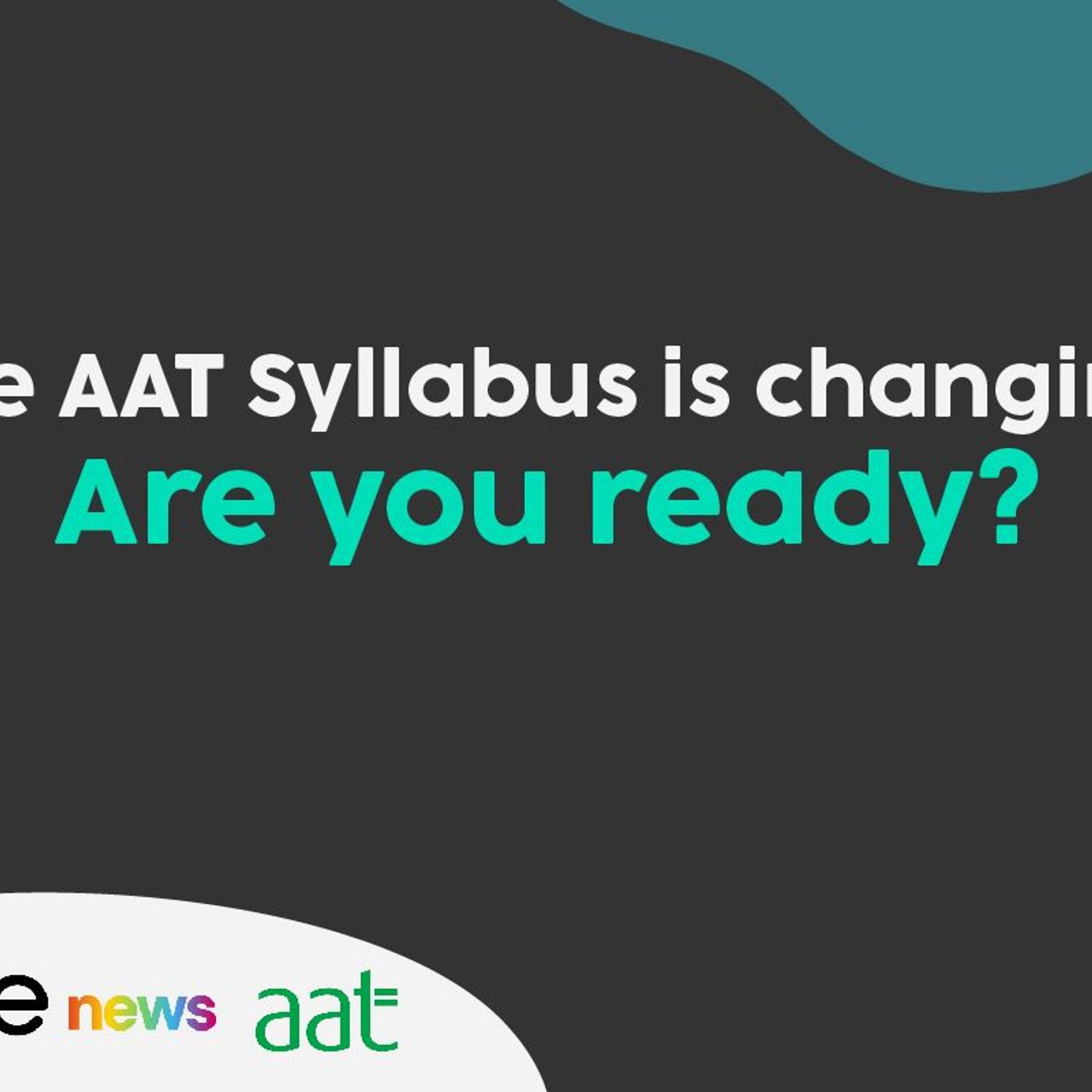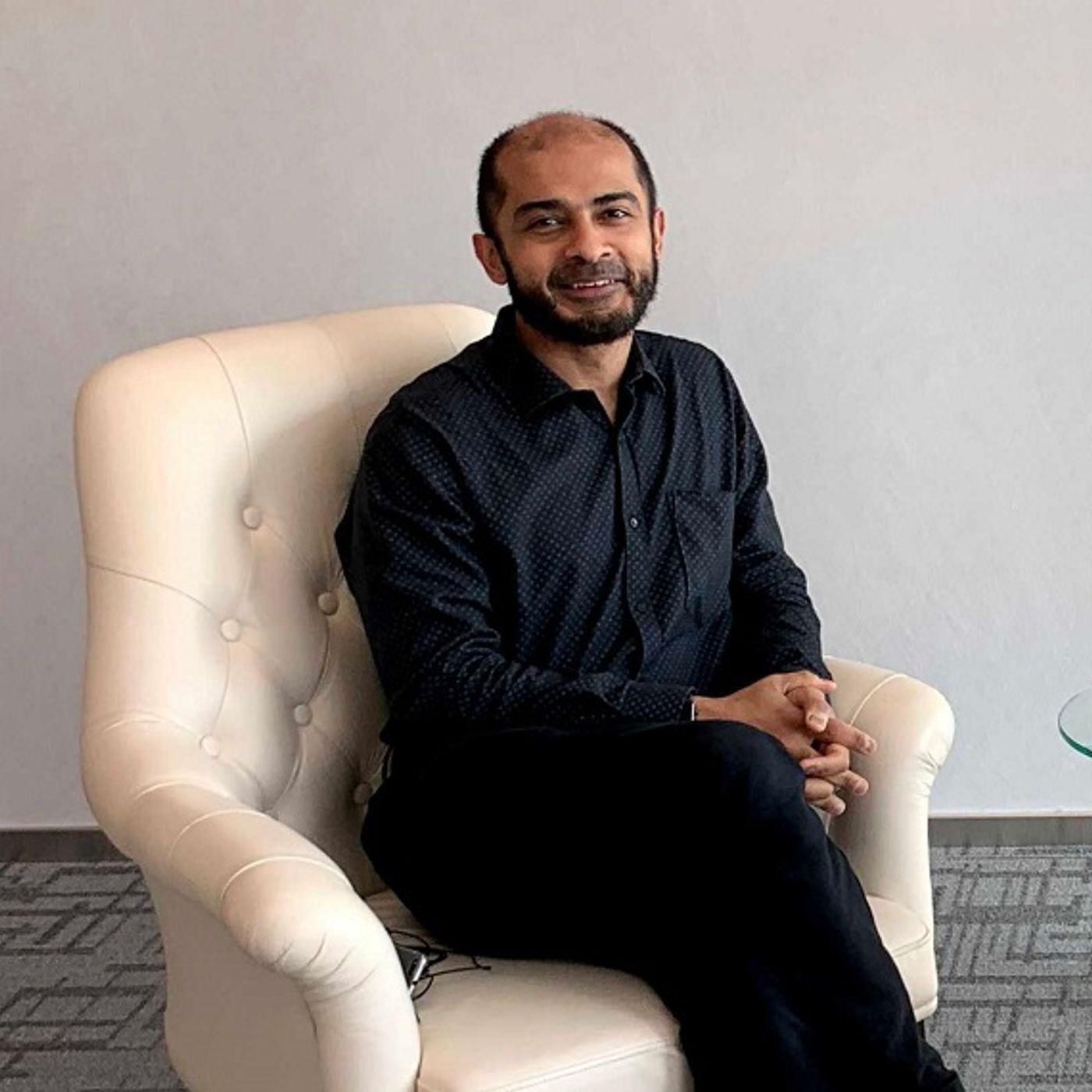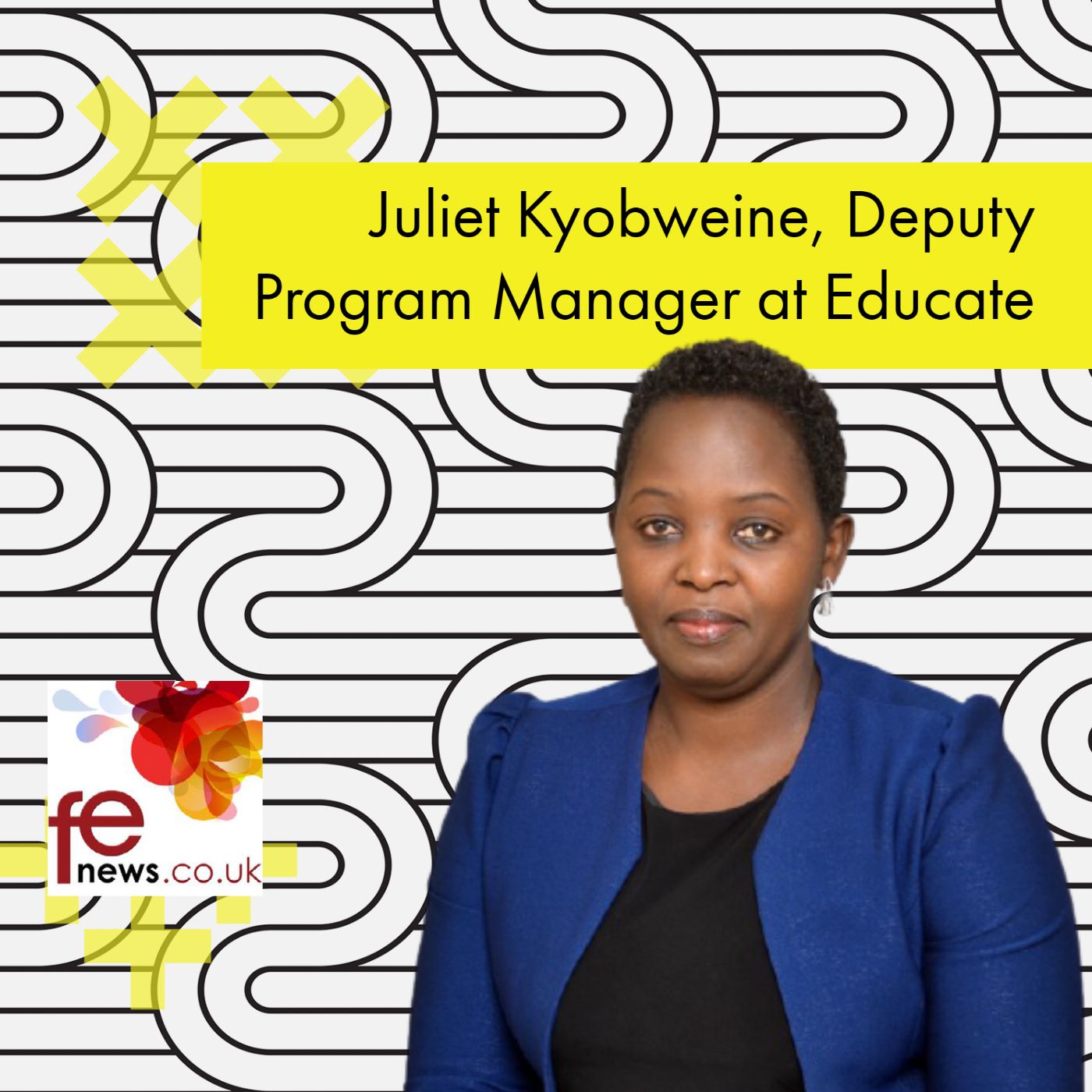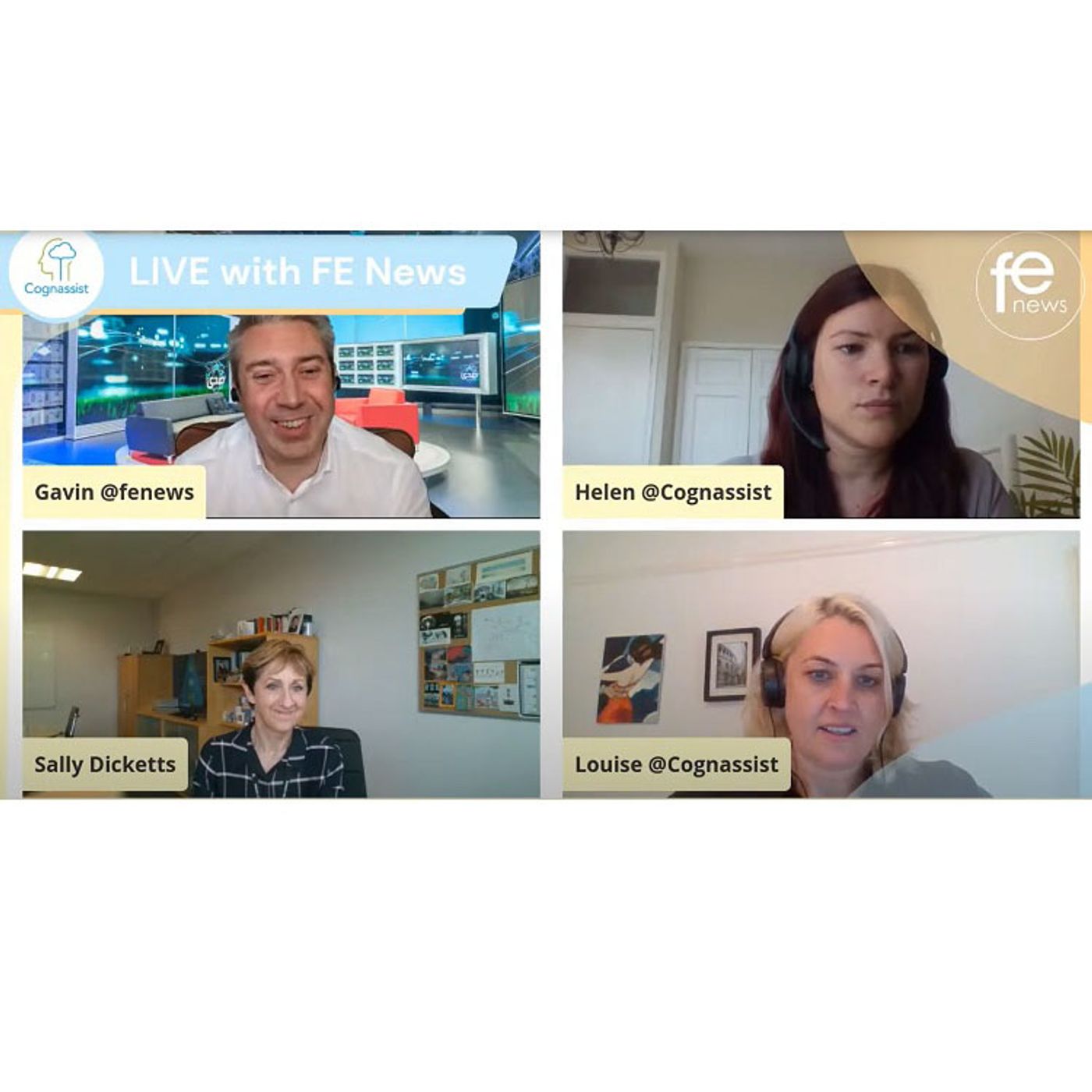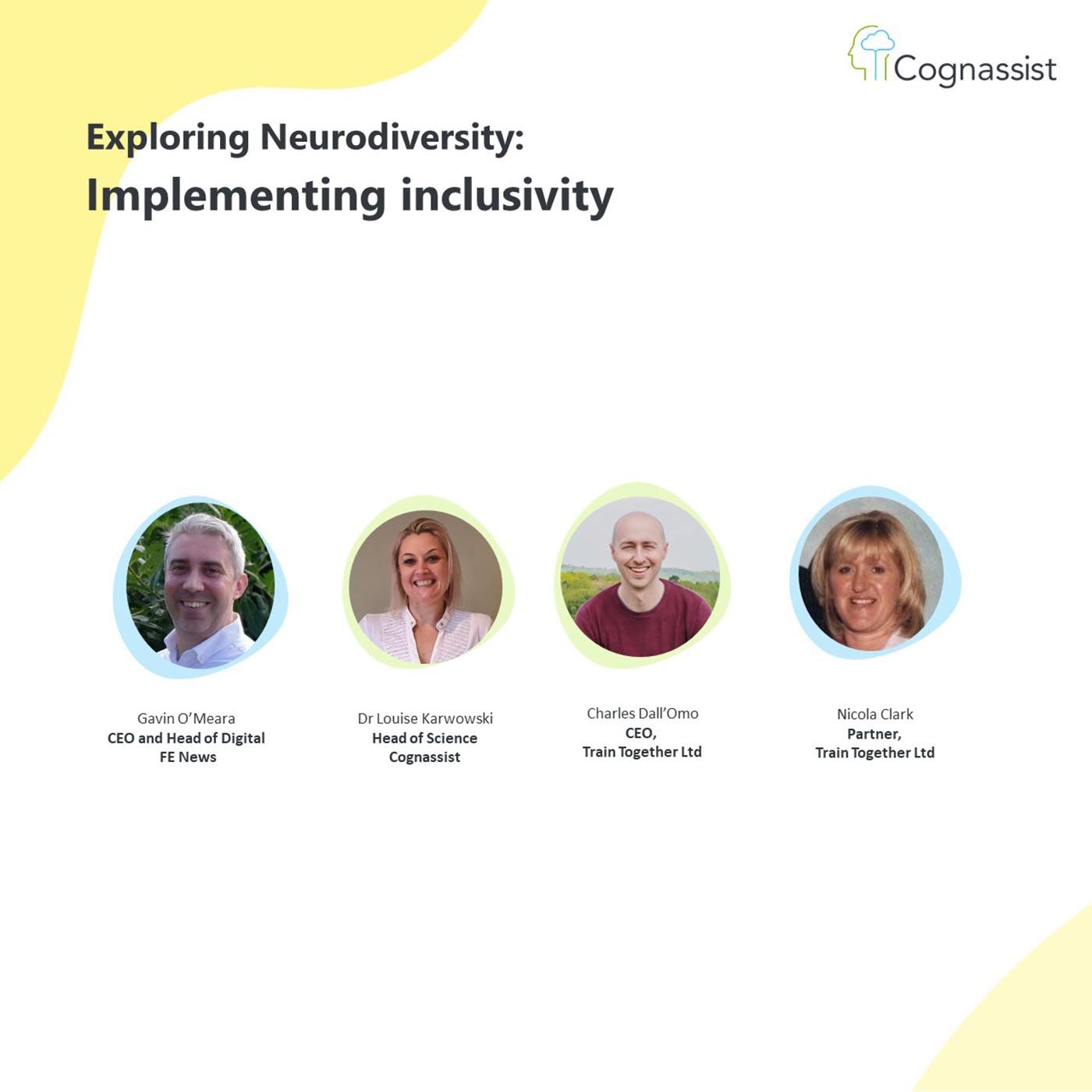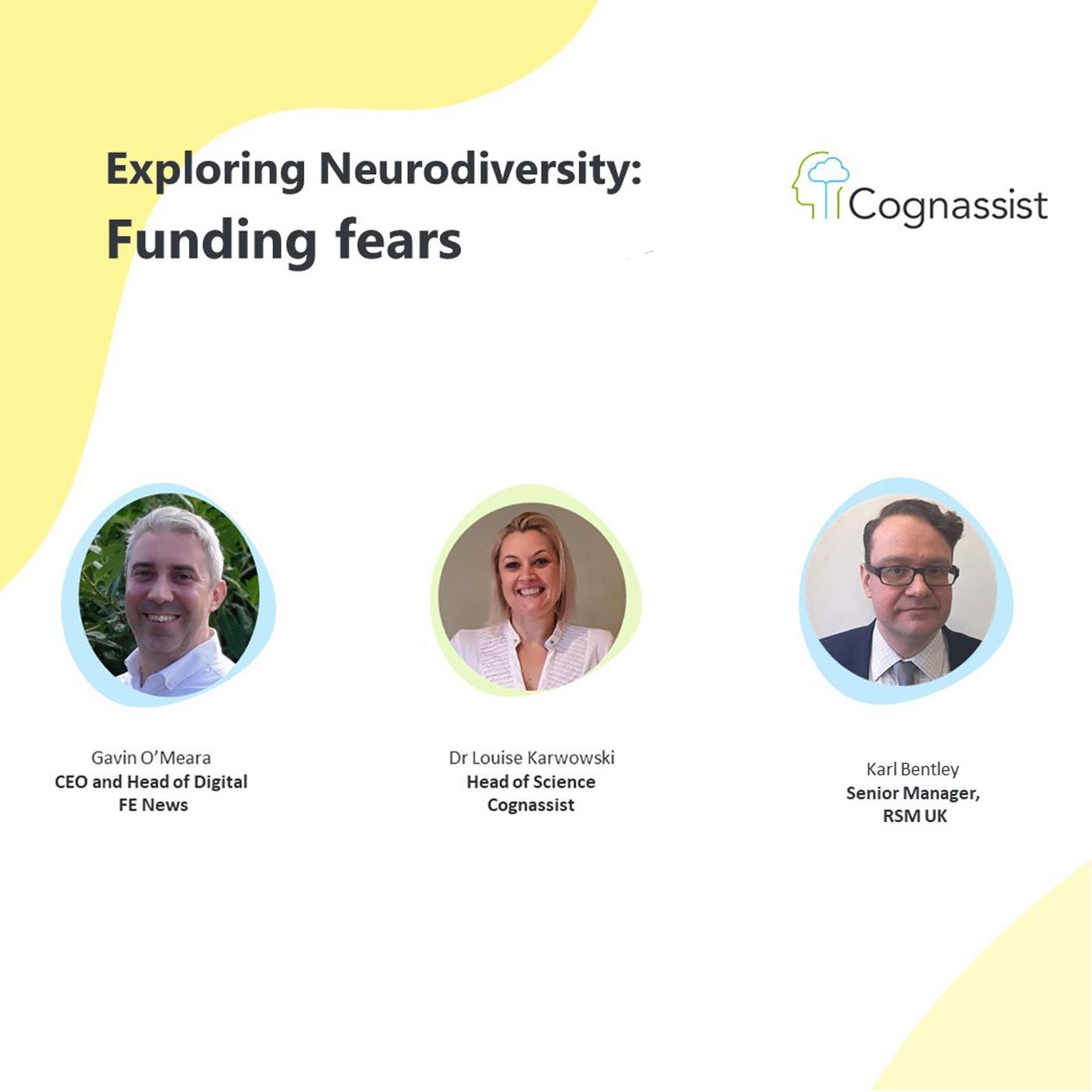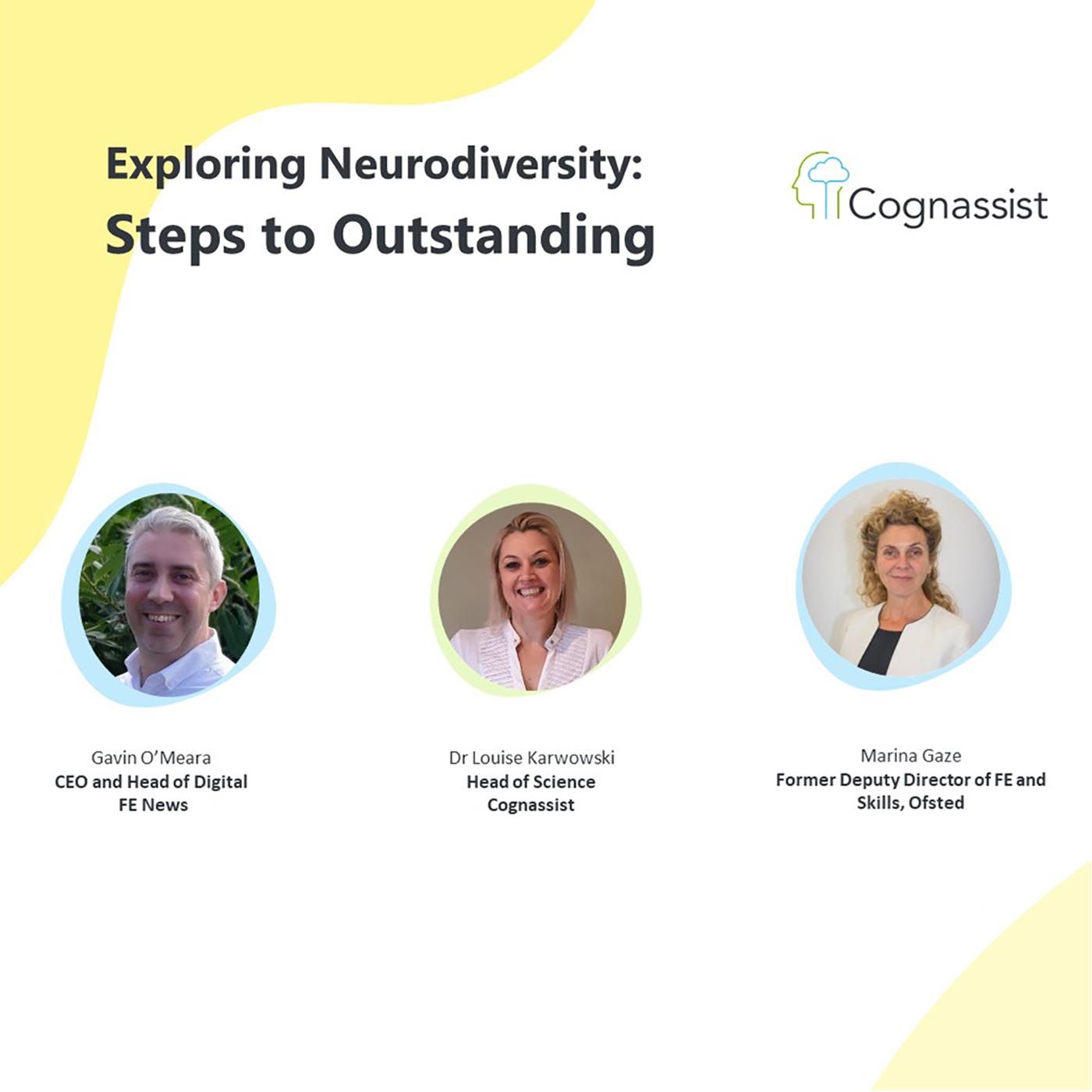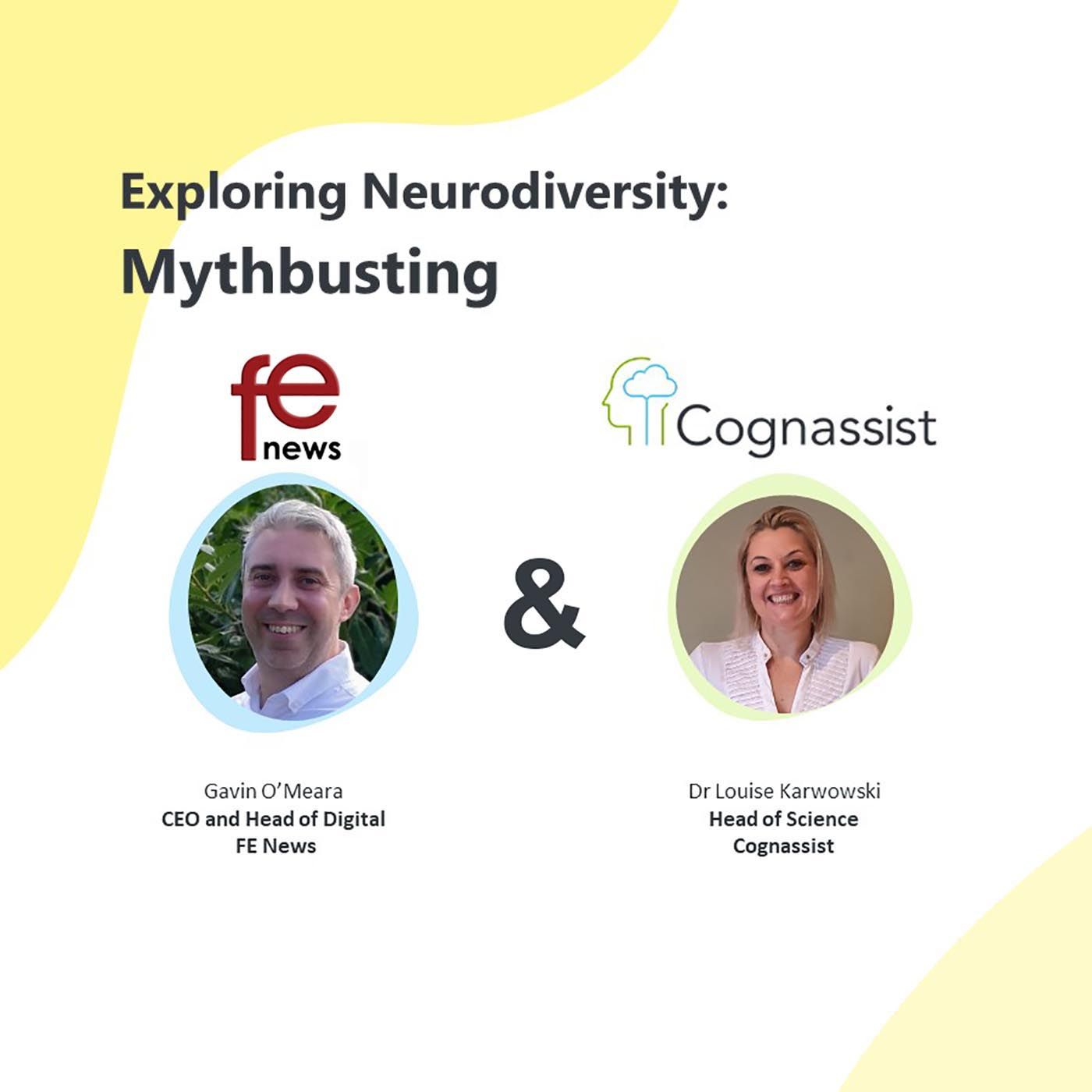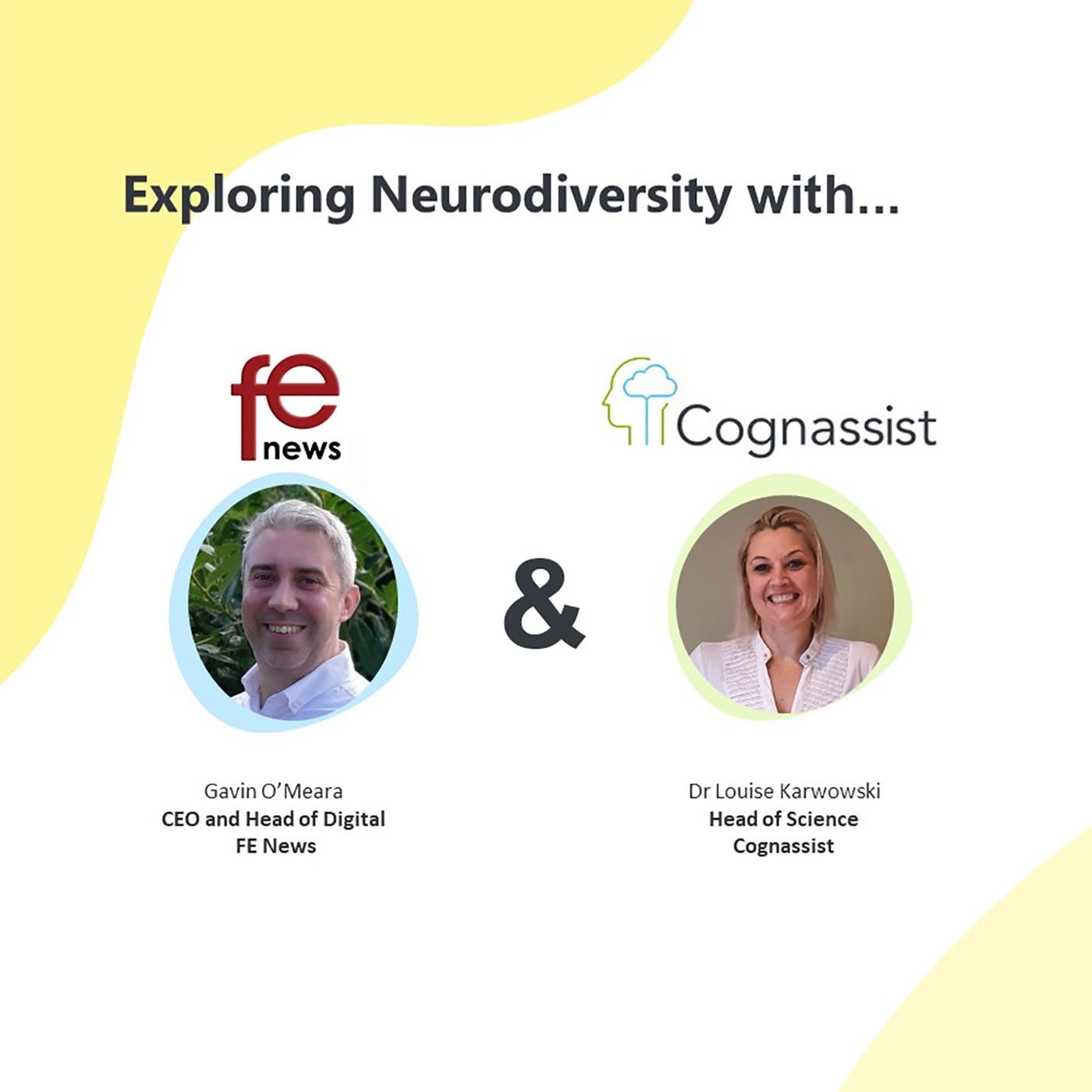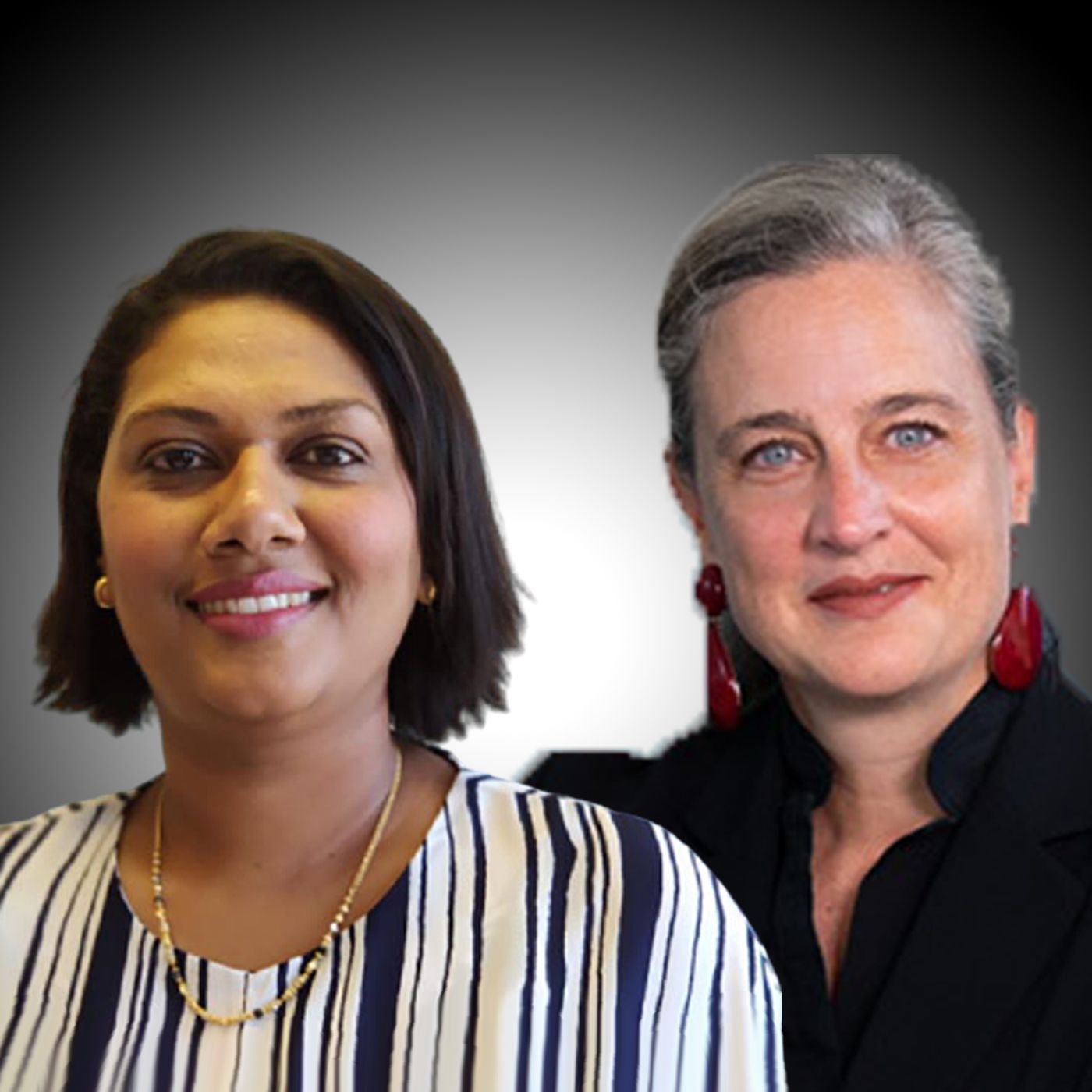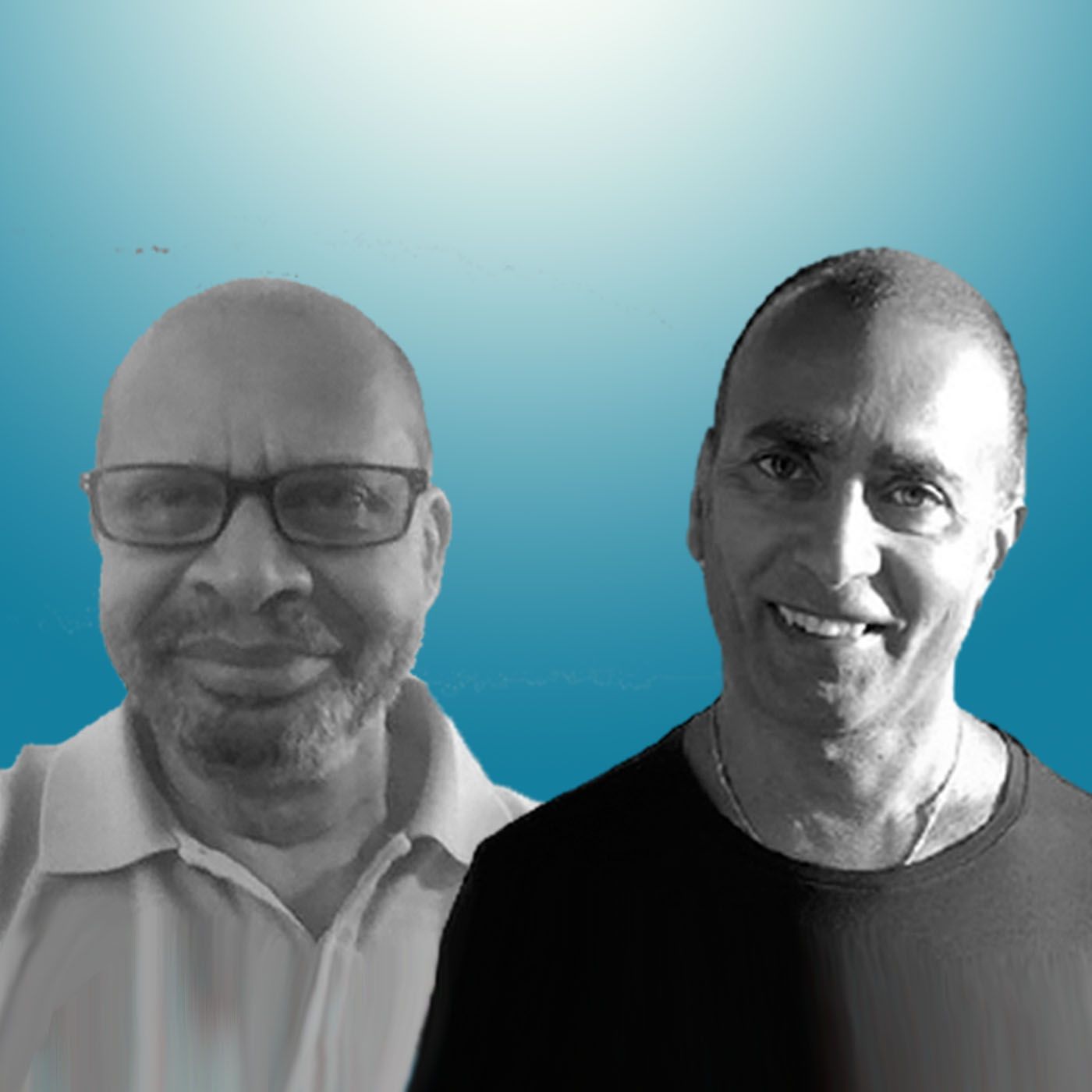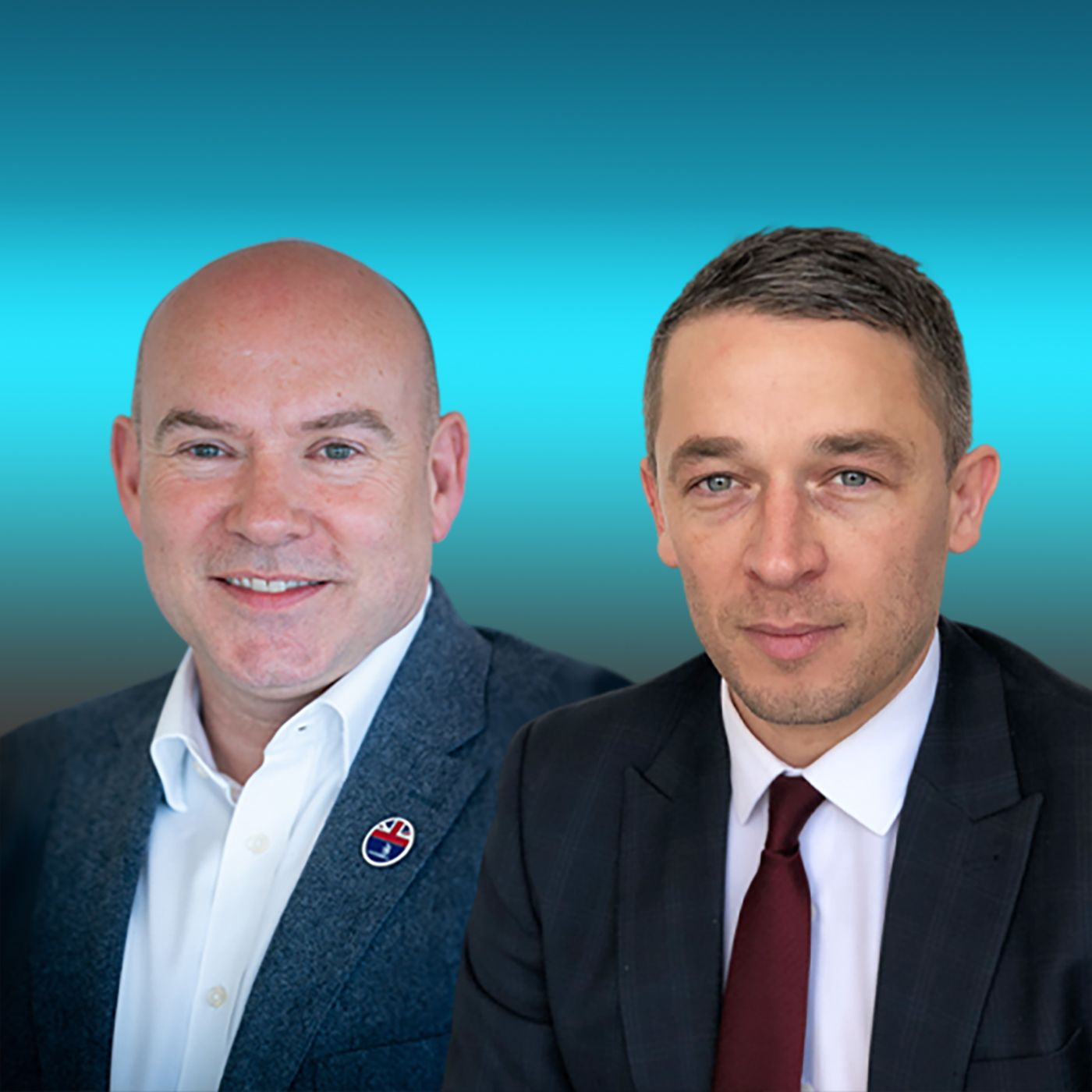Discover FE News Podcast: #FutureofEducation News Channel
FE News Podcast: #FutureofEducation News Channel

FE News Podcast: #FutureofEducation News Channel
Author: FE News
Subscribed: 22Played: 278Subscribe
Share
© Copyright FE News
Description
Thought Leadership, Good News, & Event Podcasts in #EdTech #Apprenticeship #Skills #FE #HE & #Employability on www.fenews.co.uk
78 Episodes
Reverse
In this episode, Aman Merchant, the Co-Founder and Chief Provocateur at Radicle, a futures lab that delivers transformative solutions, discusses why he co-founded the RewirEd Sandbox. This global platform is set to transform education systems and will help bring together pioneers, leaders, and innovators within and beyond the education sector to design ‘RewirEd Provocations’, the solutions to some of the biggest challenges facing the education system globally today.With 1.6 billion children missing out on an education – the RewirEd Sandbox will help create the RewirEd Provocations, north-star statements or questions that will help to move current thinking from the usual to the unusual and address systemic, complex, and structural challenges impacting the education system. The RewirEd Sandbox and Provocations will help shape the new global narrative for the education sector, and will be presented on a global scale at the RewirEd Summit during Expo 2020 Dubai.For more information on the RewirEd Sandbox and Provocations, visit: https://provocations.rewired2021.com/homeThe RewirEd Summit will be held on December 12th to 14th, 2021 at Expo 2020 Dubai.
Juliet Kyobweine, Deputy Program Manager at Educate talks about the need to equip young people in Africa with the skills to attain further education, overcome gender inequities, start businesses, get jobs, and drive development in their communities.
#NoLearnerLeftBehind - Welcome to the first @FENews #Livestream in conjunction with @CognAssist We all know that learner dropout is a serious issue. Approx 35% of Apprentices drop out. The big question is, how do we prevent apprentices from dropping out?Your host is Gavin O’Meara, CEO of FE News and your panelists are:Dr. Louise Karwowski, Director of Education, Cognassist,Sally Dicketts, AoC President and CEO Activate Learning, and Helen Wilson, Science Communication Manager, Cognassist and handbook author of How to Prevent your Apprentices from Dropping out.The panel explores how recent events have impacted dropout rates of Apprentice completion rates. We explore if non-completion rates are an age old problem and the panel shares successful tactics reduced Apprentice dropout, particularly for learners with Additional Learning Support needs.The panel then explores the recent updates from the ESFA and the new rules added for August 2021. These are updates from ESFA to Apprenticeship Rules 21-22, the panel in particular focus on the new rules about Additional Learning Support and how the ESFA is discouraging blanket screen learners, which appears counterintuitive.The panel discuss the new ESFA recommend changes and how this will have an intended knock on effect for learner outcomes and Apprentice drop out rates.How would the proposed ESFA changes could impact the ability of colleges and ITPs to properly fulfil their legal requirements of the Equalities Act 2010 and how the changes could impact the Ofsted requirement to establish starting points and tailor delivery to all learners?Check out the livestream with Gavin, Sally, Louise and Helen who explore how to Prevent Apprentice Dropout, particularly with learners with Additional Learning Support needs
#RewirEdSummit - Dr Tariq Al Gurg, CEO @DubaiCares, joins this @FENews podcast episode to discuss RewirEd; a Dubai Care's led initiative in partnership with Expo 2020 Dubai and in close coordination with the UAE Ministry of Foreign Affairs and International Cooperation (MoFAIC), delivered in partnership with global stakeholders.This first of its kind global platform is calling on the international community to rethink and reimagine the future of education, for a prosperous and sustainable future, by encouraging disruptive dialogue and empowering new and diverse voices as pillars of a future-ready global education ecosystem.Dr Tariq Al Gurg discusses the current global problems the education sector faces, the potential solutions to "rewire" education and the current initiatives in place by RewirEd to take action, including the upcoming RewirEd Summit; a ground-breaking 3-day global education Summit taking place in December 2021 in the UAE, which will bring together key education stakeholders from around the world to collectively tackle education challenges by exploring entirely new approaches as well as offering participants a unique opportunity to agree on a shared vision and concrete action.
Welcome to Episode 4 and the final instalment of the #ExploringNeurodiversity podcast, a co-produced podcast mini-series brought to you by @FENews and @CognAssist.In this episode, your hosts Gavin O’Meara from FE News and Louise Karwowski, Head of Science at Cognassist are joined by Charles Dall'omo, CEO of Train Together and his colleague Nicola Clark, Senior Learning Coordinator at Train Together. This episode of Exploring Neurodiversity is called Implementing Inclusivity. We are joined by Charles who will share some ideas and tips from a CEO or Leader perspective and Nicola from a delivery and operational perspective. Nicola is an Inclusivity Champion, so it is fantastic to hear from someone who has lived and successfully breathed successful inclusivity implementation. Charles discusses how communication is key, not just with the team and staff members, but also with key stakeholders. Charles shares some tips on how they successfully rolled out an inclusive model in their Training Provider. Nicola then shares how to support individual Neurodiverse learners, but most importantly how to equip and support all of the team to support learners.Please check out the podcast below to hear how Charles and Nicola have Implemented Inclusivity to support Neurodiverse learners, so #NoLearnerIsLeftBehind:
Welcome to Episode 3 of the #ExploringNeurodiversity podcast, a co-produced podcast mini-series brought to you by @FENews and @Cognassist.In this episode your hosts Gavin O’Meara from FE News and Louise Karwowski, Head of Science at Cognassist are joined by Karl Bentley from RSM to discuss Neurodiversity Funding Fears. Karl has over 20 years in the FE sector and is a funding, data and audit specialist.We explore what additional funding is available to support Neurodiverse learners and how the funding is available to support all learners from levels 2-7.Louise explains that from over 100,000 learner assessments completed so far at Cognassist, that on average one in three Apprenticeship learners at level 3, are being identified as requiring additional support for Neurodiversity. So this is a massive challenge and need and highlights the importance of providers utilising the additional funding to support their Neurodiverse learners.Karl and Louise then explore why Training Providers and Colleges could be hesitant to take this additional funding due to funding clawback. Karl shares some best practice tips to evidence additional support for Neurodiverse learners, particularly around Assessment of Need, Planning and Evidence of Activity for the learner.Karl explains how colleges and providers should evidence additional learning for Neurodiverse learners and the importance of all of the team working together to evidence additional support and the importance of quality compliance. Karl also explains the importance of data, how long to keep the data for each learner, data security and the importance of planning for the long term security of your data.We then explore what an actual Audit looks like and what an auditor will be asking for and how to start preparing the evidence and impact of the additional funding support for learners.
Exploring Neurodiversity Podcast – Steps to Outstanding with Marina GazeWelcome to Episode 2 of the Exploring Neurodiversity podcast, a co-produced podcast mini series brought to you by FE News and Cognassist. In today’s episode your hosts Gavin O’Meara from FE News and Louise Karwowski, Head of Science at Cognassist are joined by Marina Gaze to discuss Steps to Outstanding. Marina is an expert in quality processes and used to be the Deputy Director for Further Education and Skills at Ofsted. Marina shares her views and insight for Providers, Colleges, Individual educators and teams to be outstanding everyday when supporting learners with Neurodiversity, not just when thinking of Ofsted of the new Education Inspection Framework. In this Exploring Neurodiversity podcast we explore what steps we can take to encourage teams to be outstanding when we support learners with Neurodiversity. Marina and Louise explore how to start to remove the stigma and encourage everyone to be open and comfortable talking about Neurodiversity and supporting Neurodiverse learners. Marina explores Providers responsibilities around quality, particularly with Ofsted in mind whilst supporting Neurodiverse learners. She also unpacks the recent Education Inspection Framework – (EIF), changes, particularly for supporting Neurodiverse learners. As the key changes came in September 2019, which was only about 6 months before the pandemic and the lockdown measures came into force in the UK. As Covid-19 has transformed education delivery, we explore moving forward into the next stage to the response to the pandemic, how can we ensure that no learner is left behind? We also explore what the future of hybrid learning, online learning and face to face learning could be in FE and Skills, and what lessons can be learned whilst supporting Neurodiverse learners. Marina then provides some helpful advice and insight as to what happens in an actual Ofsted Inspection (she used to be the Deputy Director for Further Education and Skills at Ofsted) and discusses data and what is a ‘Deep Dive’ when it comes to an Ofsted inspection and what should providers, their teams, so basically everybody be evidencing and keeping as data from now to prepare for this.? To close the podcast we discuss how we can encourage high quality provision everyday and by everyone across the sector for every learner, particularly neurodiverse learners and to ‘keep it real’, not just for an Ofsted tick box or aiming for the Ofsted quality badge. Check out the Exploring Neurodiversity – Steps to Outstanding podcast:
Exploring Neurodiversity – Mythbusting and removing barriers Welcome to Episode 1 of the Exploring Neurodiversity podcast. Episode 1 is with Dr. Louise Karwowski, Head of Science at Cognassist and is all about Mythbusting in Neurodiversity and is all about removing barriers for learners, educators, teams and leaders. Exploring Neurodiversity is a brand new podcast four part mini-series that is co-produced by FE News and Cognassist. Louise explores the common myths and barriers that surround Neurodiversity, firstly exploring Cognassist’s data from over 100,000 learner assessments that highlights that 1:3 learners have a Neurodiversity. With this in mind, almost every educator will have several Neurodiverse learners in their cohort or class, so we then explore some of the barriers and myths faced by Educators. Louise then shares examples of best practice and helpful advice for educators starting with working with learners with a potential undiagnosed Neurodiversity, things to spot and look out for in undiagnosed learners. How Educators, Teams and Leaders can support Neurodiverse learnersTime is always in short supply for Educators, so Louise discusses some tips and advice for Educators to tailor delivery for Neurodiverse learners and how Teachers and Trainers can support neurodiverse learners and how to importantly evidence this support. She then moves onto Teams and how supporting Neurodiversity is everyone’s role, not just SEND specialists and ways that Leaders can support their teams.Louise then dives into some mythbusting around Learning Styles and the notion that some people just can’t grasp certain subjects.Supporting Learners who may be reluctant, defensive learners, learner denial or embarrassed learners Supporting Learners with Neurodiversity is key, so Louise shares some tips on supporting individual learners pre and post-assessment. Louise explores how to support learner reluctance, particularly how to support learners who have just been told they have a Neurodiversity and may be reluctant to complete the additional work and support around the core of their qualification. She goes onto share some tips with defensive learners, learners in denial over their Neurodiversity, or embarrassed learners or disruptive learners. Music: www.bensound.com
Exploring NeurodiversityWhat does it really mean to think differently?We all have our own perspective on the world. Each of us thinks and learns in our own way. It’s the job of educators to teach people new information, which gives them the skills, knowledge and behaviours they need to succeed. But how often do we give people the skills, knowledge and behaviour they need to learn this information in the first place?Exploring Neurodiversity is a new mini-series which will be answering these questions and more across four episodes:MythbustingSteps to OutstandingFunding fearsImplementing inclusivityJoin Dr. Louise Karwowski, Head of Science at Cognassist, Gavin O'Meara, CEO at FE News and guests for this latest podcast mini-series brought to you by FE News.
Anthony discusses the changes in educational delivery from before Covid, to these now During Covid times. He then discusses the future of blended learning.Anthony then shares some interesting examples of best practice of digital transformation in education and what the future of online learning and education could be and how the trend has moved to developing skills.Coursera had a recent Global Skills Index report earlier in the year . Anthony discusses the trending skills in the UK right now and how these compare to Europe and across the World. He then discusses why it is important that people continue to learn for life. He then discusses the future of lifelong learning and stackable skills.Then Anthony explains what his personal vision for the future of education and online learning could be and how education is a force for good.
FE News chat with Chris Quickfall, CEO and Founder of Cognassist to unpack Reasonable Adjustments in Apprenticeships and Skills.Our brains are more unique than a fingerprint but far more complex!We all think, learn and experience the world differently. And whilst we’ve made progress in accelerating inclusivity in education, significant barriers exist for many learners.Put simply, reasonable adjustments are the measures taken to make learning, education and, more broadly, the world equally accessible to everyone.Think left-handed scissors.If you want to get technical: (Source)“A reasonable adjustment relates to an adjustment that helps to reduce the effect of a disability or a physical or mental health condition, which may place the apprentice at a disadvantage compared to others.”What is crucial is that employers, training providers and EPAOs have a legal duty, under the Equality Act 2010, to provide reasonable adjustments. The Higher Education sector has been executing reasonable adjustments to a high standard for years, it’s time the FE sector did the same.In this discussion, we’ll be unpacking reasonable adjustments in detail, discussing the recent changes in guidance for apprentices and sharing practical insights into how to implement reasonable adjustments for your learners.
FE News have a really interesting international podcast for you unpacking the skills for the Future of Work with Nazrene Mannie from GAN (the Global Apprenticeship Network) and Bettina Schaller from Adecco Group. Both Nazrene and Bettina are members of the B20 (Business 20) Future of work and education task force that advises the G20. As well as looking into the skills for the Future of Work, we also unpack two reports the recent B20 Future of Work and Education 2020 Policy Paper that is a set of recommendations from the B20 to the G20 and Adecco’s recent report on Resetting Normal – Defining a new Era of Work. We explore with Nazrene and Bettina how the skills for the future of work are changing. We explore lifelong learning, the Digital Skills gap, automation, the importance of meeting future labour market needs, diversity and future work skills such as autonomy for leaders and staff during this new era of work with physical distancing measures. Nazrene also shares some interesting findings with physical distancing measures and what this means for Apprentices across the globe. Please check out the podcast to hear what Nazrene and Bettina have to say about the skills for the future of work.
FE News chat with Jonathan Mitchell, Deputy Director for Apprenticeship Development at the Institute for Apprenticeships and Technical Education and Zuza Wnekowska, who is an Apprentice Panel Member and is also completing an Apprenticeship in aerospace engineering to unpack the recent Apprenticeship survey.We discuss the Apprenticeship survey, what it's aims were, and the results. Three of the most striking responses to the survey were around Apprenticeship Pastoral Care, entitlement to 20% off the job training and Apprentices being prepared for End Point Assessment.The report was completed during the height of the lockdown, but this also provided valuable information on how to support Apprentices during either potential local or a second national lockdown in response to the Covid crisis. As 58% of Apprentices who responded to the survey explained that their Apprenticeship was impacted by Covid-19, 35% who provided a qualitative response on this topic said they stopped receiving off the job training for some or all of the pandemic.Check out the Apprentice Survey findings and recommendations on this podcast unpacking the Apprenticeship Survey.
Robin and Amarjit unpack their 10 point plan and explain how an inclusive curriculum is key , to promote anti-racism in Further Education, for learners, staff and leaders.Amarjit and Robin then discuss how they have been engaging with the FE sector so far to explore solutions to help the sector be more inclusive. We then discuss the early impact, particularly how different sector groups have started to work with the Black FE Leadership Group and we particularly unpack the response from Apprenticeship and Skills Minister Gillian Keegan as to next steps to help increase diversity of Black and BAME educators, leaders, Boards and Governance.Robin highlights at the moment there is a reduction in the amount of data around Black and BAME staff and leaders and how this needs to be addressed to then help the sector progress in being inclusive with the diversity and particularly to try and re-balance the number of Black staff in the FE Sector.Amarjit also shares a personal story how non-black FE leaders mentored and helped him in his career and how we need to continue this across the sector to increase the diversity of teams in the sector and how the sector can rally together to address diversity in the FE Sector, particularly around increasing more Black and BAME educators and leaders in the sector.
Here is part two unpacking the operational running of the WorldSkills UK Centre of Excellence, in this episode we chat with Joan Scott, Assistant Principal of the Trafford College Group and Frazer Minskip, WorldSkills UK Centre of Excellence High Performance Skills Coach and a WorldSkills UK Training Manager for the Automotive sector. We unpack how the High Performance Skills Coaches will practically support Providers. The scheme will roll out in January and will be with the pilot of 20 colleges . As all of the High Performance Skills Coaches are a part of the Team UK and have all of the high performance experience from the WorldSkills and EuroSkills competitions, they will be sharing this knowledge with Providers across the sector to drive up quality, delivery and performance of the teams. So it is a really interesting coaching and knowledge transfer partnership to the entire sector. As Frazer explains, it would be as if the Team GB Olympic team came into schools to run PE sessions, the High Performance Skills Coaches are all part of the elite Team from WorldSkills UK and will work with groups of colleges and in the future Training Providers to work with the senior leadership team and also the Practitioners, so with individual Lecturers, Trainers and Tutors across all curriculum areas. Joan explains that from a college perspective, having the knowledge transfer partnership from the Centre of Excellence helps drive up performance, quality and the CPD of not just the senior leadership team, but also the individual practitioners and delivery staff, which will then help to continually improve the operational delivery in the college and then across the entire sector.Check out the podcast with Frazer and Joan to unpack how the High Performance Skills Coaches will be a part of the strategy to help improve performance and operational delivery across the sector.
FE News caught up with WorldSkills UK CEO Neil Bentley Gockmann and NCFE CEO David Gallagher about the Centre of Excellence and the potential impact on the FE Ecosystem.Many people may not understand what the Centre of Excellence actually is, so Neil and David both break down what the Centre of Excellence (CoE) is, and how the CoE will help deliver World class training and mentoring to Colleges and Providers in the future.Neil explains that the CoE is not just for Skills competitions, but for the whole FE system. It is like bringing the Team UK Olympic team to deliver PE in schools, the High Performance Skills Coaches are the Training Managers from Team UK, working with groups of Educators and Senior Leaders. Initially this is in colleges, but in the future also in Training Providers, to help deliver excellence and raise quality in curriculum delivery.After initial research from Oxford Univiersity and Skope, which highlighted the need to move from Competence to Excellence, David and Neil explained that they looked at other WorldSkills nation’s Centres of Excellence and explored how this could be adapted to help the entire FE and Technical education system in the UK. They particularly looked at South Korea and the Russian Centre of Excellence, particularly how they positively impacted their entire Technical Education system.We then explore the longer term plans for the CoE and the partnership between NCFE and WorldSkills UK. Particularly improving the quality of delivery and helping the UK levelling up or social mobility with learners. At the moment the CoE has a pilot of 20 colleges and 35 colleges as a part of the WorldSkills Innovation Network, but Neil and David explain how this three year project will then expand into a provision for both providers and colleges.We then discuss the upcoming FE White Paper, and how the Centre of Excellence model could be interesting for Gavin Williamson.
@FENews chat with @GillianKeegan, Under Secretary of State for Apprenticeships and Skills, about #TLevels We unpack T Levels, particularly with the pilot T Level programmes starting this September, many learners would be starting the first T Levels this week.Gillian chats about how the Covid pandemic has affected T Level delivery, particularly the industry placements and the measures put in place to help learners achieve their 315 hours of industry placements (at least 315 hours, some T Levels on the pilot programme, such as those around Education, have significantly longer work experience options). She also explains what happens if the 315 work experience hours are not possible.We then go onto discuss how DfE are helping employers and careers advice and guidance specialists be educated about T Levels, and goes onto explain the major differences between Apprenticeships and T Levels.The Minister then explains how T Levels are a helping with the levelling up agenda for regions and socially disadvantaged groups and the BAME community. We also discuss the future plans for T Levels, such as potentially including adults and the key priorities for DfE with T Levels over the coming year.
The FE White Paper - Which international education and skills systems are good inspiration?#FEReform - @DavidPriceOBE discusses which international education and work systems could be a good inspiration for the upcoming FE White Paper.In the Autumn of 2020, the much anticipated FE White paper is due to be released. Education Secretary Gavin Williamson has hinted that he is taking inspiration from the German Education system.In his July #FEReform speech Gavin Williamson said:“That’s why this autumn I will be publishing a White Paper that will set out our plans to build a world-class, German-style further education system in Britain, and level up skills and opportunities”So we asked David Price OBE, has just completed an international research project for his recent book the Power of and asked for his opinion on which international education and work systems could be a good inspiration for the upcoming FE White Paper.David Price OBE, is an expert in organisational learning for a complex future. He writes, talks, trains and advises, around the world, on some of the biggest challenges facing business, education and society: solving the problems of employee, student and civic disengagement; maximising our potential to be creative, innovative and fulfilled citizens, and understanding the global shift towards open organisations, and systems of learningSo here are some ideas and inspiration that David thought would be interesting to share with the FE News audience.
David Price OBE discusses The Power of US @DavidPriceOBE launches new book "The Power of Us: How we connect, act and innovate together" This book launch has an interesting time being during the Corona Crisis, Gavin @FENews took the opportunity to chat with David about what the education system, the future of work and what we can learn from the current world situation:Exploring how the education system needs to change and take inspiration from the 17-yr old high school dropout who created the world's most used Covid tracking app, but was seen to be a failure in his education system, to how the World of work is evolving.
Comments
Top Podcasts
The Best New Comedy Podcast Right Now – June 2024The Best News Podcast Right Now – June 2024The Best New Business Podcast Right Now – June 2024The Best New Sports Podcast Right Now – June 2024The Best New True Crime Podcast Right Now – June 2024The Best New Joe Rogan Experience Podcast Right Now – June 20The Best New Dan Bongino Show Podcast Right Now – June 20The Best New Mark Levin Podcast – June 2024
 United States
United States

